[ad_1]
Starter Kit: Japan
~ Part Two ~
A Starter Kit to get you kick-started on your Jdrama Journey. To begin a whole new country drama database can be daunting, therefore I have made a starter kit just for you, to help you get started.
Japanese dramas are truly amazing, they are engaging and always straight to the point. Japanese dramas are always incorporating out of the box thinking and new concepts, not afraid to go out of their comfort zone to deliver their audiences something that will linger on you.
❀❀❀❀❀❀❀❀❀❀❀❀❀❀❀❀❀❀❀❀❀❀❀❀❀❀❀❀❀❀❀❀❀❀❀❀❀❀❀❀❀❀❀❀
Dramas For Beginners
Here are my recommendations if you are a newcomer to Japanese Drama. I did so according to different troupes and genres that I believe to be very beginner-friendly as a gateway to Japanese dramas.
There are mainly 3 categories of Japanese dramas:
– Morning Dramas (Asadora) are aired on NHK from 8:00-8:15 every morning, their episode counts well over 100.
– Taiga drama is the name NHK gives to the annual year-long historical drama television series it broadcasts in Japan, which is often 45min and episode count in the 50 range
– Normal JDramas are short, often episode count ranges from 8-12 and usually follow a release schedule of 1 episode a week.
|
Youth: Hanazakari no Kimitachi e (For You In Full Blossom)
|
Age Gap: Kimi Wa Petto (You’re My Pet)
Tags: Cohabitation, Age Gap, Sweet Male Lead, Secret Relationship, Clingy Male Lead, Love Triangle, Hidden Relationship, Smart Female Lead |
|
Mystery: Tags: Bromance, Revenge, Hidden Identity, Tragic Past, Secret Relationship, Amnesia |
Detective Investigation: Unnatural |
|
Contemporary: Rich Man Poor Woman
|
Suspense/Romance: Todome No Kiss (Kiss of Death)
|
|
Psychological/ Drama: Boku no Yabai Tsuma (My Dangerous Wife)
Tags: Infidelity, Plot To Kill, Money-obsession, Kidnapping, Revenge |
Thriller: 3 Nen A Gumi: Ima kara Mina-san wa, Hitojichi Desu (Class 3A – All of You Are Hostages From Now On)
|
❀❀❀❀❀❀❀❀❀❀❀❀❀❀❀❀❀❀❀❀❀❀❀❀❀❀❀❀❀❀❀❀❀❀❀❀❀❀❀❀❀❀❀❀
Know Your Actors
Get to know some great actors and actresses that have a great track record of always delivering enjoyable stories and performances.
❀❀❀❀❀❀❀❀❀❀❀❀❀❀❀❀❀❀❀❀❀❀❀❀❀❀❀❀❀❀❀❀❀❀❀❀❀❀❀❀❀❀❀❀
Know Your Basics: Language
Japanese Honorific
|
Most Formal Honorific |
This higher version of -san is used in very specific situations towards people who have a high status. Used for guests, customers, and divine gods |
|
|
Most Common Honorific |
Equivalent to “Mr.”, “Miss.”, “Mrs.” or “Ms.”. Used between equals of any age. |
|
|
Male Honorific |
Used when referring to men in general and used by superiors to address those of junior status. |
|
|
Female Honorific |
Used for girls, close friends, children, or lovers. It adds a sense of cuteness. Only used between people who have known each other for a long time |
Japanese Kanji
|
Japanese has 3 different alphabets, kanji count for one of the three. They originate from traditional Chinese characters. Kanji characters have many pronunciations in Japanese depending on the context. For example 深山 is a character’s surname, pronounced “Miyama”, but though misconception to be pronounced “Fukayama” if no specified. |
 |
Buzz Words
*Words that don’t have English direct translation/ cultural words
“どうぞ” Douzo, means “here you are” / “go ahead”.
“がんばれ” ganbare, word of support/ encouragement/ try your best.
“いただきます” Itadakimasu, means to humbly receive/ let’s eat. It’s rude to begin eating before you say this!
“いってきます“Ittekimasu, expresses that “I will be going now but do not worry, I will safely return”
“いってらっしゃい“Itterasshai indicates that “You will be leaving soon but please do come back safely”.
❀❀❀❀❀❀❀❀❀❀❀❀❀❀❀❀❀❀❀❀❀❀❀❀❀❀❀❀❀❀❀❀❀❀❀❀❀❀❀❀❀❀❀❀
Know Your Basics: Culture
OFF WITH THE SHOES
Before entering any person’s home, and some restaurants and workplaces, it is common etiquette and courtesy to remove your shoes. This tradition is done in order to avoid the floor getting dirty, causing sanitary problems. In this manner, people are able to sit on the tatami or on the floor directly and to lay out the futon on the floor. * hears someone yell “HELP”, first before entering their house in a rush, they will still first remove their shoes.
*Elementary, junior, and high school students in Japan wear uwabaki (not normal shoes), in order to literally keep the floors clean.

OH MY Nose bleeds
|
Similar to Japanese Anime, Japanese Drama can also have “suspicious” nose bleeds that occur in Japanese dramas. If not for the normal reasons for some blunt force (getting hit), it is because this character is feeling “lust”. |
 |
A Samurai Philosophy
Although samurai no longer exist, the influence of these great warriors still manifests itself deeply in Japanese culture and still deeply ingrained in the psyche of the Japanese people. The basis of samurai conduct is bushido, “the way of the warrior”. This unique philosophy valued honour, reckless bravery, and selflessness, as well as the duty to the warrior’s master with the purpose of giving up one’s life and embracing death. These trait in Japanese drama is a common theme, and the philosophy of a samurai is its stem.

Japanese Festivals
There are countless local festivals (祭り, matsuri) in Japan because almost every shrine celebrates one of its own. People, with their family or friends, will attend these festivals wearing traditional kimonos. There are many activities, food/gift stalls, performances, and fireworks. Most festivals are held annually and celebrate the shrine’s deity or a seasonal or historical event. Every festival has its own characteristics: some may be calm and meditative, many are energetic and noisy.
❀❀❀❀❀❀❀❀❀❀❀❀❀❀❀❀❀❀❀❀❀❀❀❀❀❀❀❀❀❀❀❀❀❀❀❀❀❀❀❀❀❀❀❀
Where to Watch Your Drama
Japanese dramas with English subtitles are sadly very hard to find, especially if you are biased to legal sites. While Viki, Netflix, and Prime have a great selection of Asian dramas, but their Japanese selection is dismal (something needs to be donneee!).
Here are my recommendations for Japanese dramas that are available on Netflix and Viki.
Viki: Under the Miracle Cherry Tree and Mischievous Kiss: Love in Tokyo
Netflix Recommendation: Midnight Dinner and Erased
❀❀❀❀❀❀❀❀❀❀❀❀❀❀❀❀❀❀❀❀❀❀❀❀❀❀❀❀❀❀❀❀❀❀❀❀❀❀❀❀❀❀❀❀
Quick Tips
-
Read the comments. Since it can be really hard to find somewhere to watch JDramas with English subtitles, your best bet is to read the comments to find a source.
-
Romanized Japanese “titles”. Most JDrama on MDL will use their romanized title, but their English titles will often be available on their page.
-
Don’t forget the movies. JMovies can actually feel like real blockbusters. Japan releases just as many movies as they do dramas.
❀❀❀❀❀❀❀❀❀❀❀❀❀❀❀❀❀❀❀❀❀❀❀❀❀❀❀❀❀❀❀❀❀❀❀❀❀❀❀❀❀❀❀❀
Questions
If you are a veteran of Jdramas:
If You are a newcomer to Jdramas:
❀❀❀❀❀❀❀❀❀❀❀❀❀❀❀❀❀❀❀❀❀❀❀❀❀❀❀❀❀❀❀❀❀❀❀❀❀❀❀❀❀❀❀❀
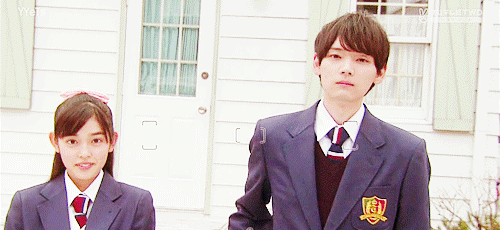
Thank You For Reading! Continue Your Drama Watching. ^^
Edited by: Cookie (1st editor), BrightestStar (2nd editor)
[ad_2]
Source link





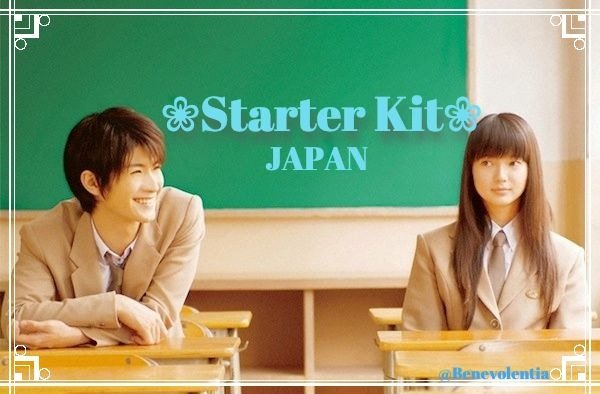
 Tags: Cross Dressing, High School, Love Triangle, Reverse-Harem, Strong Female Lead, Bromance, School Dorm, All-Boys School
Tags: Cross Dressing, High School, Love Triangle, Reverse-Harem, Strong Female Lead, Bromance, School Dorm, All-Boys School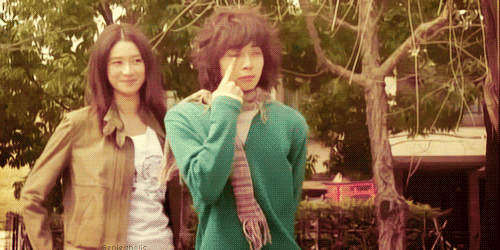
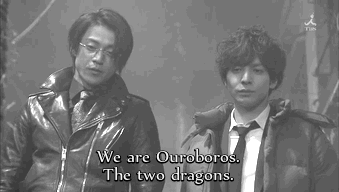
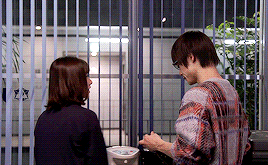 Tags: Forensic, Police Procedural, Smart Female Lead, Slice Of Life, Strong Female Lead
Tags: Forensic, Police Procedural, Smart Female Lead, Slice Of Life, Strong Female Lead Tags: Eccentric Male Lead, Prodigy, Bromance, Prosopagnosia, Rich Man/Poor Woman, Entrepreneur, Smart Male Lead
Tags: Eccentric Male Lead, Prodigy, Bromance, Prosopagnosia, Rich Man/Poor Woman, Entrepreneur, Smart Male Lead Tags: Time Travel, Mean Male Lead, Obsession, Host Club, Character Development, Black Comedy, Tragic Past, Death Of Sibling, Seduction
Tags: Time Travel, Mean Male Lead, Obsession, Host Club, Character Development, Black Comedy, Tragic Past, Death Of Sibling, Seduction
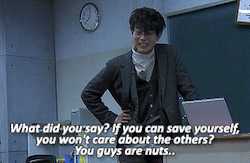 Tags: High School, Life Lesson, School Bullying, Eccentric Male Lead, Hostage, Teacher, Student, Suicide, Cyber Bullying,
Tags: High School, Life Lesson, School Bullying, Eccentric Male Lead, Hostage, Teacher, Student, Suicide, Cyber Bullying,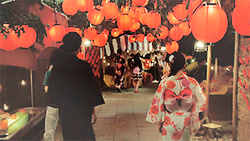




More Stories
Park Hyung Sik and Han So Hee Radiate Chemistry in Cute Promotional Stills for Disney+ K-drama Soundtrack #1
Go Kyung Pyo in discussion to join Park Min Young and Kim Jae Young in a new drama
New Trailer is Out for “Green Mothers Club”